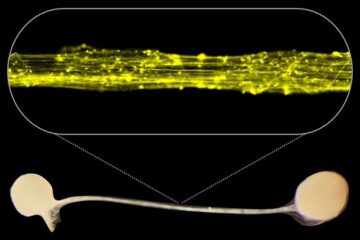Common pesticide may reduce fertility in women

Methoxychlor (MXC), a common insect pesticide used on food crops, may interfere with proper development and function of the reproductive tract, leading to reduced fertility in women, researchers at Yale School of Medicine write in the August issue of Endocrinology.
The researchers found that MXC, which was manufactured as a safer replacement for the now-banned DDT, alters the estrogen-regulated gene Hoxa10 in the reproductive tract and reduces the ability of the uterus to support embryo implantation. The researchers used mice and then human cell lines to confirm their findings.
MXC is a man-made pesticide used to kill flies, mosquitoes, cockroaches and other insects, and is applied directly to food crops, livestock, home gardens and pets. It is one of a large number of chemicals that can mimic the action of hormones and in some instances interfere with endocrine function.
Some of these endocrine disruptors bind estrogen receptors and adversely affect reproductive tract development, which is heavily influenced by estrogen. MXC and other chemicals like DDT have been shown in other studies to induce abnormalities in tissue development and function in the female reproductive tract.
“MXC has an adverse effect on these mice similar to that of DES, a synthetic estrogen,” said senior author Hugh S. Taylor, M.D., associate professor in the Division of Reproductive Endocrinology and Infertility in the Department of Obstetrics, Gynecology & Reproductive Sciences at Yale School of Medicine. “Female offspring of women exposed to DES were more likely to have an abnormally shaped cervix, were more prone to cancer of the vagina, miscarriages, early labor and other complications.”
Other authors on the study included Xiaolan Fei and Hajin Chung
Media Contact
More Information:
http://www.yale.eduAll latest news from the category: Health and Medicine
This subject area encompasses research and studies in the field of human medicine.
Among the wide-ranging list of topics covered here are anesthesiology, anatomy, surgery, human genetics, hygiene and environmental medicine, internal medicine, neurology, pharmacology, physiology, urology and dental medicine.
Newest articles

Exploring the Asteroid Apophis With Small Satellites
In five years’ time, a large asteroid will fly very close to Earth – a unique opportunity to study it. Concepts for a national German small satellite mission are being…

First model of the brain’s information highways developed
Our human brain is not only bigger and contains more neurons than the brains of other species, but it is also connected in a special pattern: Thick bundles of neurons…

Why getting in touch with our ‘gerbil brain’ could help machines listen better
Macquarie University researchers have debunked a 75-year-old theory about how humans determine where sounds are coming from, and it could unlock the secret to creating a next generation of more…





















